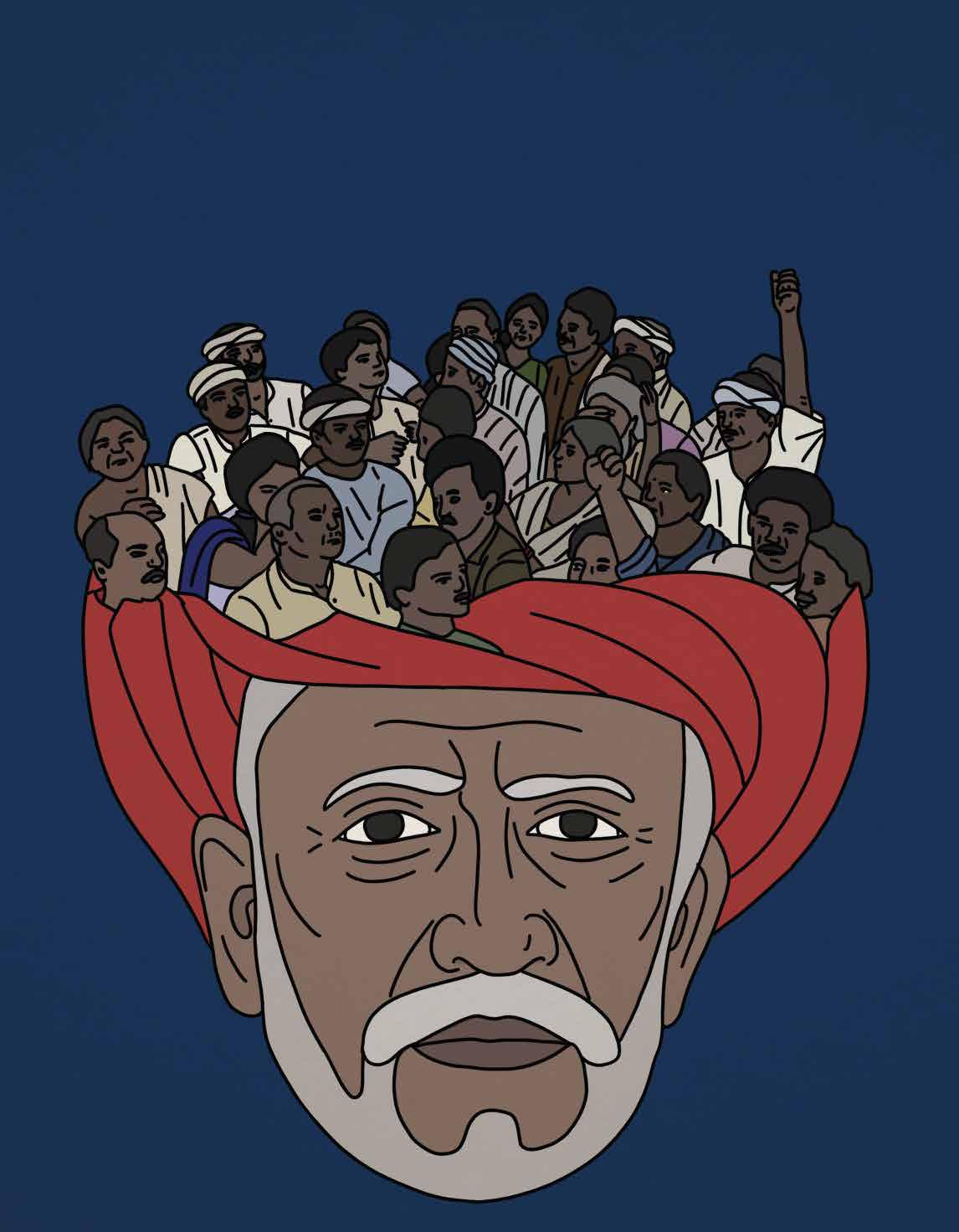
This is followed by a preface written in English, which was intended for the colonial authorities and written in the formal prose style already customary in English but not yet in Marathi. He gestures to the mythical lineage of the Brahmin community and the spiritual basis of their authority over non-Brahmins but interprets these myths in the context of new developments in history and anthropology, as well as early findings on Indo-European migration into India. He also describes this retelling of the traditional Puranic narrative as "the history of Brahmin domination in India." Then, quoting from the Manusmriti, he describes how Brahmins perpetuated caste by suppressing non-Brahmins and extracting their labour. The preface ends with a petition to the colonial authorities, who, Phule hopes, "will ere long see the error of their ways, trust less to writers or men who look through high class spectacles and take the glory into their own hands of emancipating my Sudra brethren from the trammels of bondage which the Brahmins have woven round them like the coils of a serpent."
A Marathi introduction follows this English preface. As the text switches between languages, it retains its prose form but now addresses a non-Brahmin Marathi readership instead. Continuing in the same vein as before, Phule writes of how Brahmins tricked non-Brahmins into serving them while retaining control over their resources in a spiritual and secular sense. He then writes of developments in the West, where slavery was abolished.
この記事は The Caravan の October 2022 版に掲載されています。
7 日間の Magzter GOLD 無料トライアルを開始して、何千もの厳選されたプレミアム ストーリー、9,000 以上の雑誌や新聞にアクセスしてください。
すでに購読者です ? サインイン
この記事は The Caravan の October 2022 版に掲載されています。
7 日間の Magzter GOLD 無料トライアルを開始して、何千もの厳選されたプレミアム ストーリー、9,000 以上の雑誌や新聞にアクセスしてください。
すでに購読者です? サインイン

Mob Mentality
How the Modi government fuels a dangerous vigilantism

RIP TIDES
Shahidul Alam’s exploration of Bangladeshi photography and activism

Trickle-down Effect
Nepal–India tensions have advanced from the diplomatic level to the public sphere

Editor's Pick
ON 23 SEPTEMBER 1950, the diplomat Ralph Bunche, seen here addressing the 1965 Selma to Montgomery March, was awarded the Nobel Peace Prize. The first black Nobel laureate, Bunche was awarded the prize for his efforts in ending the 1948 Arab–Israeli War.

Shades of The Grey
A Pune bakery rejects the rigid binaries of everyday life / Gender

Scorched Hearths
A photographer-nurse recalls the Delhi violence

Licence to Kill
A photojournalist’s account of documenting the Delhi violence

CRIME AND PREJUDICE
The BJP and Delhi Police’s hand in the Delhi violence

Bled Dry
How India exploits health workers

The Bookshelf: The Man Who Learnt To Fly But Could Not Land
This 2013 novel, newly translated, follows the trajectory of its protagonist, KTN Kottoor.